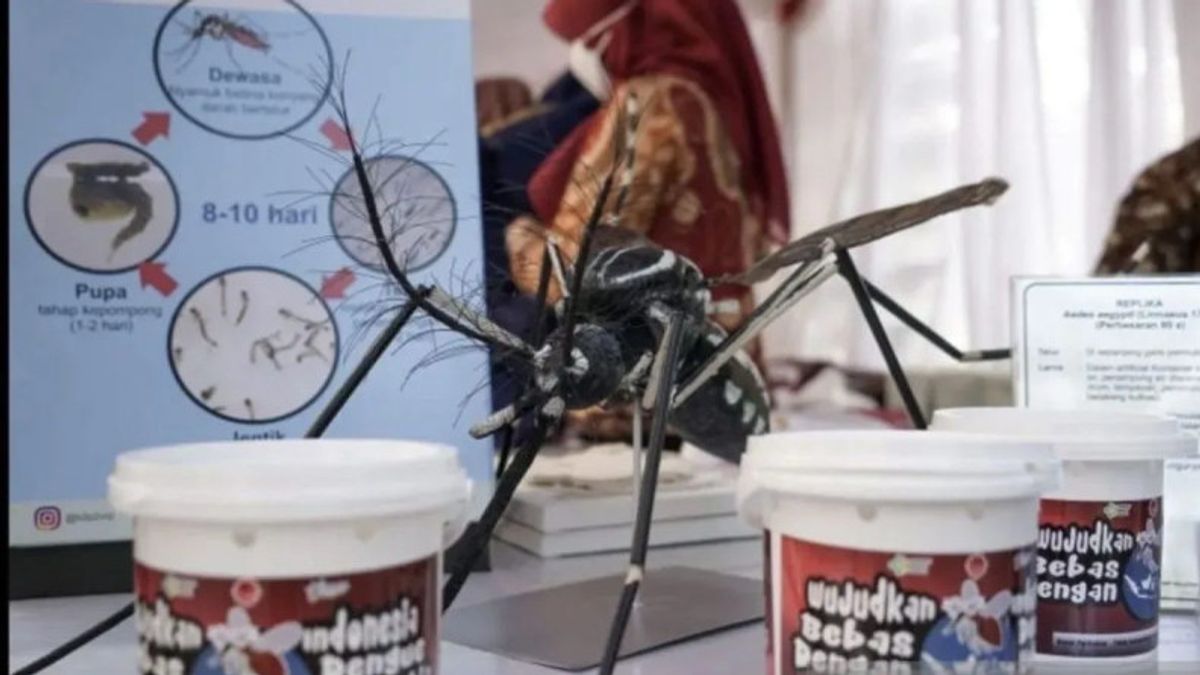
JAKARTA - Director of Prevention and Control of Infectious Diseases of the Ministry of Health (Kemenkes) Imran Pambudi emphasized that information about mosquitoes with Wolbachia can carry lesbian, gay, bisexual, and transgender (LGBT) viruses that are not true or hoaxes.
"There is disinformation that mosquitoes will enter the human body and cause LGBT, if that is true, of course, mosquitoes with Wolbachia must enter the human body, even though in reference it cannot happen, because Wolbachia only lives in the body of an insect, if it comes out of the cell it can die," he said in a year-end talk with the Ministry of Health in Jakarta, reported by ANTARA, Tuesday, December 19.
Imran said that Wolbachia technology is a complement to the existing dengue control program, such as eradicating mosquito nests with 3M plus, one house movement, one jumantik, or an operational work group (pokjanal) specifically for dengue fever.
The focus of the spread of the Wolbachia mosquito is focused on six cities, namely West Jakarta, Bandung, Semarang, Bontang, Kupang, and Denpasar.
Imran said that the Wolbachian mosquito can reduce the need for spraying or fogging by up to 83 percent.
"In 2023, there are areas that budget 125 sprays, but until November they are only used nine times, so the budget allocation can be made for others," he said.
He emphasized that a study had been carried out on the surrounding community and had received a Wolbachian mosquito.
관련 항목:
The results of the study were delivered by the Director of the Center for Tropical Medicine, Faculty of Medicine, Public Health, and Nursing at Gajah Mada University (UGM) Yogyakarta, dr. Riris Andono Ahmad.
"In Sleman and Bantul, Yogyakarta, we took blood samples, because if a virus enters the body, the body automatically forms antibodies. Of the many blood samples of residents we took, none of them were found to have antibodies against Wolbachia in his body," said Andono.
Andono said that the application of this Wolbachian mosquito is more appropriate in densely populated cities, because mosquitoes also have flight boundaries.
He also explained, based on the results of a study seen from the British medical journal, the effectiveness of the application of Wolbachia mosquitoes in a community can reduce incidents of dengue hemorrhagic fever (DHF) cases by 77 percent, while reducing hospitalization capacity due to dengue fever by 86 percent.
"Even in Niteroi, Brazil, it has also succeeded in reducing its chikungu case by 56 percent, also reducing the risk due to the zika virus by 37 percent," he said.
The English, Chinese, Japanese, Arabic, and French versions are automatically generated by the AI. So there may still be inaccuracies in translating, please always see Indonesian as our main language. (system supported by DigitalSiber.id)
















